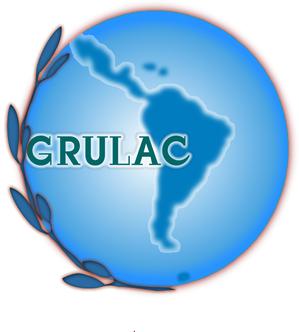Sergio Cambronero
There were high expectations at the first part of the 26thCouncil Session of the International Seabed Authority (ISA). 2020 was thought by many to herald the approval of the Exploitation Regulations. However, the drafting process is ongoing, entrenched in debate on key elements, which in turn has led to uncertainty around the approaching imposed deadline.
To understand the situation as it stands, it’s important to know some background. For negotiations, the UN establishes that countries distribute into 5 Regional Groups, mainly according to geographic proximity:
- African Group (AG) [47 members]
- Asia-Pacific Group (APG)[45 members]
- Eastern European Group (EEG)[23 members]
- Latin American and Caribbean States Group (GRULAC) [29 members]
- Western European and Other States Group (WEOG)[23 members]
These groups represent the way world order functions and how decisions are brought to consensus, one important aspect of the negotiations.
Also of relevance is the Legal and Technical Commission (LTC), often called ‘the engine room’ of the ISA. This commission is currently composed of 30 members of varying expertise who are elected every 5 years and make recommendations to the Council, including on key decisions. The next LTC election is in 2021, with rules guiding the composition of the LTC meant to be set by July 2020.
The prominence of politics between Regional Groups is steadily increasing as negotiations continue to build momentum. Countries are stepping up, including many who had limited participation previously, and strategies to secure interests are becoming more explicit. This, in part, led to little progress on substantive matters at the most recent Session, with discussions instead focused on procedural issues, such as the election of presidency and the criteria for election of LTC members. This has emerged as one of the most contentious matters, with many Regional Groups speaking to the importance of equitable geographic representation and/or expertise among the 30 elected. Additionally, Regional Groups must elect facilitators for three recently-established Open-Ended Working Groups that should assist progress on the draft regulations on exploitation of mineral resources in the Area.
Given the scarce understanding of the deep ocean globally, Regional Groups can help to fill the gap. Diplomats, policymakers and other stakeholders struggling to equip themselves with the relevant knowledge to inform the deep-seabed mining negotiations can meet more often, to discuss official positions while supporting each other as they work towards finding common ground as a whole group of countries who not only share a language and tradition, but also economic interests. The importance of these meetings and other informal settings is because these are casual environments where delegates and advisors can truly engage by interacting without feeling the pressure of the ISA floor’s diplomacy. Outcomes of these conversations help Regional Groups to identify priorities and advances of knowledge in terms of research and expertise among the group.
This year I was fortunate to present along with other experts on deep-ocean fundamentals at a GRULAC meeting, as part of theDeep Ocean Stewardship Initiative (DOSI) delegation. This was a true honor for me, as the meeting was organized by the permanent mission of Costa Rica to the ISA, my home country who is leading the way on improving environmental considerations on a trans-regional approach. In that sense for me it was a huge responsibility to inform representatives of my neighbor delegations about what we know and don’t know about the environments under exploration by ISA contractors.
I was surprised to realize that while many delegates were well in tune with the financial and legal aspects discussed at the ISA, most were much less familiar with the life and ecology of these deep-sea environments. It was a great opportunity to help them to build a mental picture of what deep sea really looks like, way beyond their previous idea of just bulldozers rolling around the seafloor. The looks on their faces and audible gasps when seeing the footage of the incredible coral and sponge communities living on seamounts in the West Pacific reminded me of my feelings when I first saw an anglerfish; no matter where in the world you come from, it is hard not to be awed by the deep-sea life!
Not only GRULAC, but other Regional Groups are building capacity, transferring knowledge and empowering decision-making in deep-sea matters. This is particularly important to assure the equitable representation of the Common Heritage Principle. This was the main flagship raised during discussions about the LTC election and is something that will raise many questions during the following months. Does deep-sea mining represent a benefit for the whole humankind or just to a relative few?
With marine science and technology becoming more accessible and the next revolution likely linked to the Blue Economy, developing countries that were previously disengaged are now taking the leap. This next UN Ocean Decade will be crucial for countries to institute adequate regulations for existing activities and to better plan future ones, while transitioning away from fossil fuels. Hopefully, these ten years should allow time for the world to prioritize research and exploration of the ocean, in order to estimate an accurate timeframe for gathering the data needed to inform the approval or disapproval of exploitation mining activities in the deep-sea, whenever that time comes.
